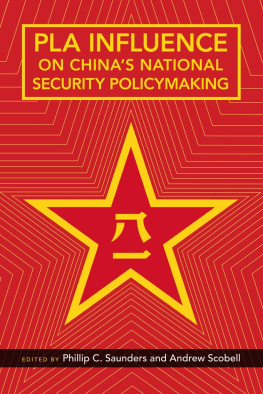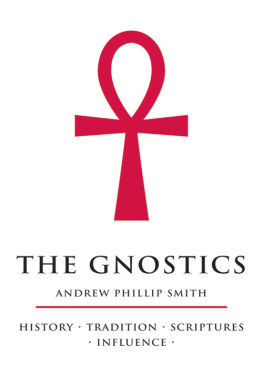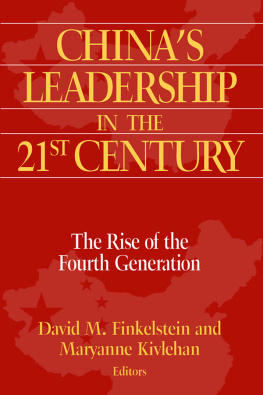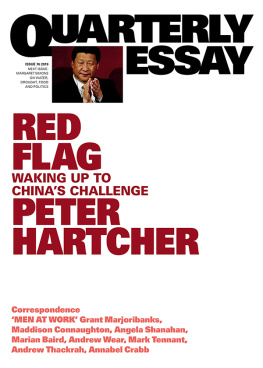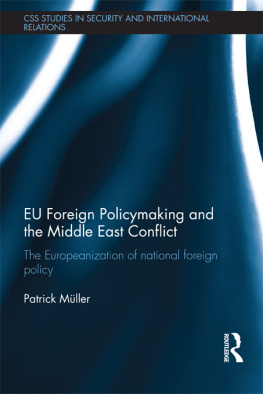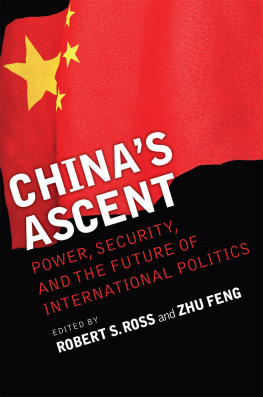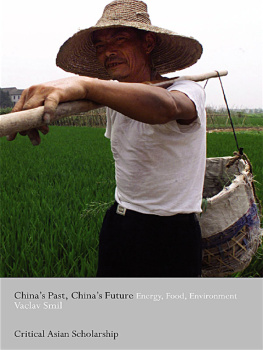Stanford University Press
Stanford, California
2015 by the Board of Trustees of the Leland Stanford Junior University.
All rights reserved.
No part of this book may be reproduced or transmitted in any form or by any means, electronic or mechanical, including photocopying and recording, or in any information storage or retrieval system without the prior written permission of Stanford University Press.
Printed in the United States of America on acid-free, archival-quality paper
Library of Congress Cataloging-in-Publication Data
PLA influence on Chinas national security policy-making / edited by Phillip C. Saunders and Andrew Scobell.
pages cm
Includes bibliographical references and index.
ISBN 978-0-8047-9462-6 (cloth : alk. paper)
ISBN 978-0-8047-9625-5 (pbk. : alk. paper)
1. China. Zhongguo ren min jie fang junPolitical activity. 2. National securityChina. 3. ChinaMilitary policy. 4. Civil-military relationsChina. 5. ChinaForeign relations21st century. 6. ChinaPolitics and government21st century. I. Saunders, Phillip C. (Phillip Charles), 1966 editor. II. Scobell, Andrew, editor.
UA837.P57 2015
355'.033551dc23
2015005332
ISBN 978-0-8047-9628-6 (electronic)
PLA INFLUENCE ON CHINAS NATIONAL SECURITY POLICYMAKING
Edited by Phillip C. Saunders and Andrew Scobell
Stanford Security Studies
An Imprint of Stanford University Press
Stanford, California
The editors dedicate this book to our mothers (Loni Saunders and Myrtle Scobell), wives (Julie Hayne and Michele Bulatovic), and daughters (Linnea Claire Saunders and Sophia Scobell), with love and thanks for all they have taught us.
Contents
Phillip C. Saunders and Andrew Scobell
Isaac B. Kardon and Phillip C. Saunders
Alice Miller
Tai Ming Cheung
Nan Li
Michael D. Swaine
Bonnie S. Glaser
Andrew Scobell
Eric Hagt
M. Taylor Fravel
Christopher D. Yung
Linda Jakobson
Acknowledgments
THE BOOK GREW OUT OF A CONFERENCE ON The PLAs Role in National Security Policy-Making co-sponsored by Taiwans Council of Advanced Policy Studies (CAPS), RAND, the Carnegie Endowment for International Peace (CEIP), and National Defense University (NDU). The editors gratefully acknowledge the intellectual contributions of co-organizers Arthur Shu-fan Ding (then at CAPS, now at Chengchi Universitys Institute of International Relations) and Michael Swaine (CEIP) in shaping the agenda and recruiting paper writers, discussants, and panelists, and securing the financial support of the four sponsoring organizations.
Conference participants Ken Allen, Jean-Pierre Cabestan, Chia-sheng Chen, Roger Cliff, Bernard Cole, Cortez Cooper, Scott Harold, Alexander Huang, Brian Lafferty, Chong-pin Lin, Kim Taeho, Ma Chengkun, Cheng-ting Tsai, Shinji Yamaguchi, and Suisheng Zhao all provided comments or participated in discussions that improved the chapters in this book. Andrew Nien-Dzu Yang, Yi-su Yang, and Polly Shen (CAPS), Cortez Cooper, Scott Harold, and Lyle Morris (RAND), and Michael Glosny, Isaac Kardon, Deborah Jefferson, and Don Mosser (NDU) all provided support in organizing the original conference.
The editors thank the two anonymous reviewers who provided much useful advice in shaping the book and updating the individual chapters. Molly Murphy and Deborah Jefferson provided assistance in the legal and administrative aspects of publishing this book. Joseph Kettel helped produce summaries of the chapters for the introduction. Drew Casey provided invaluable assistance in reformatting the chapters, tracking down stray references, and standardizing the English and Chinese language endnotes.
Geoffrey Burn and James Holt at Stanford University Press deserve special thanks for guiding the book through the approval and publication process.
Introduction: PLA Influence on Chinas National Security Policymaking
Phillip C. Saunders and Andrew Scobell
IN RECENT YEARS, THE MEDIA HAVE FREQUENTLY reported on actions purportedly taken by Peoples Liberation Army (PLA) units without civilian authorization and examples of senior Chinese Communist Party (CCP) civilian leaders seeking to curry favor with the military. Some analysts credit a nationalistic and increasingly influential PLA with pushing Chinese civilian leaders into more assertive policies on a range of military and sovereignty issues.
Many China scholars and Chinese military specialists have a very different impression of PLA influence on Chinese policymaking. Applying a historical perspective, many note that CCP and PLA leaders fought together in the Chinese civil war, with civilian leaders such as Mao Zedong and Deng Xiaoping making important military contributions and military officers playing important roles in civilian positions after the founding of the Peoples Republic of China (PRC) in 1949. None of todays PLA leaders has the political stature of Marshal Peng Dehuai, who dared to criticize Maos Great Leap Forward at the 1959 Lushan conference (for which he was purged), or Marshal Lin Biao, who edited Maos Little Red Book and may have mounted a coup attempt in 1971.
Moreover, numerous examples exist of supposedly weak CCP civilian leaders intruding in the military domain to impose decisions that go against the institutional interests of some or all of the PLA. These include major military personnel reductions in 1985, 1997, and 2003; Jiang Zemins 1998 decision to force the PLA to divest most of its extensive business empire; requiring the PLA to participate in ideological campaigns against the Falungong movement and to study the three represents and the scientific development concept; curtailing privileges of PLA officers as part of General Secretary Xi Jinpings current austerity campaign; and corruption investigations of senior PLA officers, including the ongoing investigation into former Central Military Commission (CMC) Vice-Chairman Xu Caihou. Civilian leaders have reportedly rebuffed PLA efforts to regain a seat on the Politburo Standing Committee (PBSC), the highest CCP decisionmaking body, and rejected PLA Navy efforts to gain control of maritime paramilitary forces.
To most experienced PLA watchers (and to PLA officers), reports of the Chinese military acting on its own without orders from civilian party leaders bear no resemblance to reality. This book seeks to move beyond speculation and newspaper headlines to an in-depth examination of the PLAs role in national security policymaking.
Civil-Military Relations
The militarys role in policymaking is a subset of the broader field of civil-military relations. Subjective control involves a military that is integrated with society and an active participant in the political system. Civilian control is accomplished by shared values and beliefs, which reduce tensions between civilian and military leaders. In the Chinese case, this involves shared belief in Marxist-Leninist ideology, including Maos dictum that the party must always control the gun. Objective control involves military and civilian leaders with differentiated responsibilities and expertise. Because professional military leaders have different experiences, values, and perspectives than their civilian masters, civilian leaders must develop effective oversight and control mechanisms to ensure that the military remains responsive to civilian orders.
Civil-military relations in China are different from those in Western countries because the PLA is a party-army that responds to orders from the CCP rather than a state-army that responds to orders from the head of the government. Although this arrangement closely resembles the one employed in the Soviet Union and other communist countries, it differs from Western models and affects the PLAs role in policymaking because the premier cannot directly order the PLA to obey government decisions. Traditionally, CCP leaders have employed a mix of objective and subjective mechanisms to control the PLA, with many of the control mechanisms operating through party channels (such as party committees within PLA organizations and uniformed political commissars throughout the military). There is a historic tension between red (politically reliable) and expert (professionally capable), with the CCP insisting on a military that is both red and expert.

